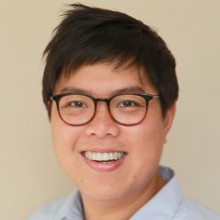Smarter Implantable Devices with µSensors and µActuators
The development of chronically reliable and multifunctional implantable and surgical devices is an enormous challenge in biomedical engineering with significant economic and clinical implications. Once in the body, implants often suffer from substantial performance degradation and premature failures due to various abiotic and biotic failure modes. Enabling technologies that improve the functionality, and the lifetime of these medical devices can have an enormous impact on many debilitating chronic neurological diseases that are difficult to diagnose and treat. My group focuses on the development of chronically reliable and multifunctional implantable and smart medical with real clinical impact. In this presentation, I will share our latest efforts to utilize microscale sensors and actuators to fabricate smarter, multifunctional medical devices for chronic and acute disease management. As a proof-of- concept, I will share our efforts to create smart catheters, intravascular stroke treatment devices, and other multi-functional implantable devices.

Dr. Hyowon (Hugh) Lee
Professor of Biomedical Engineering, Purdue University on November 15, 2024 at 10:15 AM in EB2 1231
Join Zoom Webinar
Hyowon “Hugh” Lee is a Professor at the Weldon School of Biomedical Engineering and the Director of the Center for Implantable Devices at Purdue University. He received his M.S. and Ph.D. degrees in biomedical engineering from the University of California, Los Angeles, in 2008 and 2011, respectively, under the guidance of Jack Judy. Before joining Purdue, he worked as a senior process engineer for St. Jude Medical’s Implantable Electronic Systems Division where he worked on manufacturing challenges associated with implantable electronic devices such as pacemakers, implantable cardioverter defibrillators, deep brain stimulators, and spinal cord stimulators. His current research interest centers around improving the reliability and functionality of implantable sensors and actuators. He is a recipient of the NSF CAREER award and he recently co- founded two medical devices startups. His lab is supported by NINDS, NHLBI, NIDA, NSF, Indiana CTSI, Samsung, and Eli Lilly.
This lecture series features exciting and dynamic visiting and virtual speakers from across the range of ECE disciplines. Take some time every Friday morning to be inspired by these great scientists and engineers before heading into the weekend!
